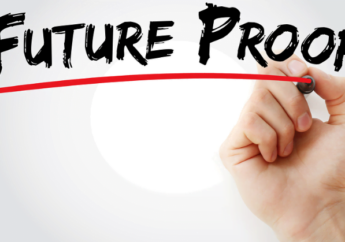How To Pay Off Your Student Loan?
by Arina Smith Finance 28 August 2021

If you are a former, a current, or even a prosperous student, who has used or will use student loans to pay for your college, you might be wondering about the best way to pay off your student loans. Unfortunately, statistics suggest that more and more Americans end up in debt by failing to manage their student loan payments each year.
Going for a student loan is risky and requires an understanding of how you will repay your student loan. Several financial websites can consult you on the best way to save your money to repay the loans, and there are steps you should take to pay off your student loan without any trouble.
3 Types Of Payment Strategy For Student Loan
The first step you need to do is choose your student loan repayment strategy. This strategy will depend on three aspects:
- student loan type;
- your payment capacities, which indicate how much you can pay a month;
- your financial goals.
For example, shorter repayment plans allow you to pay off your student loan as quickly as possible. On the other hand, compared to the longer plans, they tend to become more of a financial burden on the budget. Also, both federal and private student loans have various repayment strategies, allowing you to choose the one that fits you the most.
Nevertheless, you should bear in mind that if you’ve chosen a 10-years repayment strategy, you can’t pay off your student debt earlier. However, they’re at least four options you can consider to become free of the student loan debt earlier.
1. Know Your Student Loan Type
The first option is simple yet effective – you can choose to make additional or larger payments. By paying more to pay off your student loan, you will advance your due date. If you have several student loans, consider targeting one loan at a time while paying the minimum payments on the others. It will allow you not to go over your finance limit should anything go wrong, and it will be much easier to monitor.
The second option includes refinancing student loans. Refinancing your student loan means taking out a private loan in better conditions to pay off the old student loans. In this case, you end up with only one loan you need to make payments. These student loans are popular due to the fact they have more favorable conditions than federal loans. You and your co-signer are required to have a high (from 600 points) credit score and steady income to qualify for refinancing private student loans. Nevertheless, you should remember that student loans from private lenders do not usually have such offers as income-driven repayment or student loan forgiveness programs.
2. Your Loan Payment capacities And Process
Signing up to paying off your student loans automatically; is also a way to get rid of your student loan earlier. Income-driven repayment can be interesting as the government and even many private lenders offer an interest rate discount for those who allow monthly payments to be taken from their accounts.
By enrolling in autopay, you will not need to worry about remembering to pay on time as the monthly payments will be dedicated automatically. You will not save a lot of money by signing up to pay off your student loans automatically. Nevertheless, it will still help you in achieving the overall goal of finishing your student loan earlier.
Additionally, should circumstances beyond your control occur, like university closure or identity theft, you are eligible to qualify for student loan discharge. It immediately stops your obligation to repay the debt and may even allow you to receive a refund of payments made.
3. Figure Out Your Financial Goals And Apply For The Forgiveness
Finally, you can apply for forgiveness and reimbursement programs from the US government. Beware that in most cases, these programs are only limited to the federal student loan owners. The most famous program, Public Service Loan Forgiveness, is created for students with public service careers in public service.
Some of the forgiveness and reimbursement programs are already included in student loan repayment plans. While such kinds of programs may seem ideal for students, it’s necessary to point out that forgiveness and reimbursement programs can delay due dates, making you pay off your student loan longer.
Also, several student loan forgiveness programs are requiring students to have specific kinds of job requirements. Generally, these jobs are not well-paid compared to private-sector positions. And finally, you may even have to pay your taxes on forgiveness and reimbursement programs.
Conclusion:
To sum up, while there are many ways to pay off your student loans quicker, all of them require you to be consistent about your payments. You can combine various tactics to make your ideal student loan repayment strategy to save money and not to hurt your finances in the long run.
Read Also:







































































































